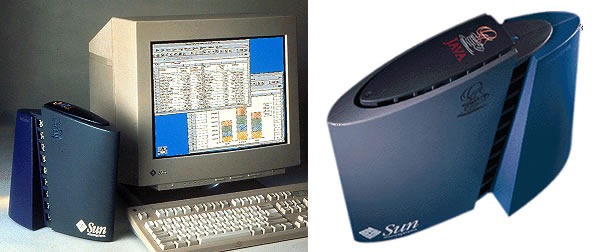
must i say it?
Posted on 12/09/2010 6:22:50 PM PST by Red in Blue PA
Stop worrying about when the hard drive in your computer will die. Google wants to kill it permanently anyway.
The new Google Chrome operating system, which was unveiled Tuesday, as well as hints and suggestions from Apple and Microsoft, offers us a preview of the PC of the future. And it will come without that familiar whirring disk that has been the data heart of the PC for the past 25 years.
The Chrome OS will at first be available on all-black laptops from Samsung and Acer. And because the new platform stores everything -- files, applications, data bits and bytes, literally everything -- on online servers rather than on your home or office PC, those new PCs running it won't require gobs of storage. In fact, they won't require any storage at all.
The new Google laptops come without hard drives, in other words.
(Excerpt) Read more at foxnews.com ...
Makes as much sense as WebTV; remember that? No freakin’ way!
Google the corporations absolutely full of itself with it’s highly overinflated egotistical corporate self worth. I’d give up using a computer completely before I would ever trust Google with storing any of my files.
Right...what would you do if you wanted to do some work offline? There are plenty of things that can be done on a computer without going online...especially important if your ISP goes down...
Make your own free backup/restore disk.
This is a good piece of software.
Paragon Backup & Recovery Free Advanced Edition.
http://www.paragon-software.com/home/db-express/
They dont want you to own/rip any videos anymore. From now on youll have to re-buy your "license" to own movies year after year.
That is hilarious !! Thanks
I highly doubt if subpoena’s will be required for access to the google data.
So does anyone with a notion of privacy and control.
I think, though, that we have a generation of younger folks with a much less pronounced sense of personal privacy, And that's why more people don't seem appalled at this.
Look at things like Facebook, youtube and all the ways people now make their personal self available to huge numbers of total strangers. My niece (a dum dum admittedly) has about 1200 "friends" on Facebook. That says a lot, and it's not good, IMO.

must i say it?
Wasn’t this tried in the 90s when computer memory was really expensive? Why should it work better today?
Does it make a copy of the operating system, to load onto a new hardrive so you can then load your backed up data? One of my back up discs has Windows XP, the other has Windows Vista. I actually like XP better for writing, editing, but Vista seems better for Internet researching, etc. The new computers do not include a back up disc with the operating system on it.
Are we the only ones who get this? Just from the headline alone I figured this was going to be a ‘cloud solution’.
Where’s the “hell no” button?
Just went by there. Thanks so much for the link. I’m going to make a flashdrive backup today!
Yes, it can make a full backup that can be loaded onto a new drive if needed.
> I’m sure I can convert it to a VM, but I can’t bring myself to do it, because I would have to briefly take it down for the ‘P2V’ conversion.
Maybe in the future ESX will be able to migrate a running physical machine to a running virtual machine.
Let’s see I can trust my data to a “cloud” which might or might not be there when needed, might or might not be secure, and might or might not have somebody snooping through to see if my stuff is legal; or I can get a 2TB drive from Best Buy for under 150 bucks. Somehow I don’t think HDD’s are going away any time soon.
Store all my data out in the cloud?
No frick’n way!
CryptoVault - Advanced Functions
From a Linux Forum:
Using Cryptovault for Password
*********************************************
Here we go...it's TrueCrypt:

and partly by the same crew. Eric Schmidt (CEO Google) was at the time (mid 90s) at Sun Microsystems running JavaSoft producing the JavaOS (an embedded OS) that ran Java Applications. Though the OS was embedded in the JavaStation unit in Flash Memory, all applications and data were hosted "in the cloud."
The concept was called a "Network Computer." No disk, just a Network Connection.
Others tried as well, but none succeeded. It's arguable that the main barriers to success were lack of network bandwidth and a lack of applications. Today, with high speed internet highly available, and a the success of the "apps" model driven by the smart phone market, that such a device probably has a better chance of success.
One key element that might just get in the way, though, is that unlike the moble phone market where network and apps ADD new capability in a growing market, a Network Computer, is REPLACING capability in a mature market (and asks the user community release control of something it has had all along (for better or worse)... its private data.
Disclaimer: Opinions posted on Free Republic are those of the individual posters and do not necessarily represent the opinion of Free Republic or its management. All materials posted herein are protected by copyright law and the exemption for fair use of copyrighted works.